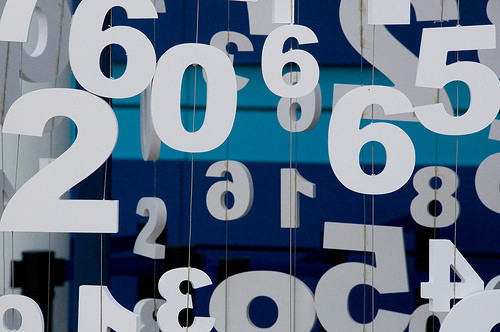The Amazing Double Meaning of Chinese Numbers
In 2003 Chengdu based Sichuan Airlines made a CN¥2.33 million investment. Their purchase: the phone number 8888 8888. But why make such an enormous investment in a simple phone number? The Chinese word for 8, 八, bā, sounds similar to the word for wealth, 发, fā.
One of the many meanings given beside this word in the mobile phone dictionary Pleco is “to make a bundle of money.” During Chinese New Year a common wish exchanged is to 发财, fācái to get rich and make a fortune. Because of the similarity in pronunciation between fā and bā, 8 is considered a lucky number in China.
Eight ‘8s’ therefore, is about as lucky as a phone number can get! In addition to the fortuitous sound of the number, when doubled 8 also looks like the Chinese character for double happiness, one of the most auspicious hanzi. 88 – 囍 Xǐ.
It is not uncommon for major decisions in China to be based on auspicious numbers, and the number eight holds particular sway. The Beijing Olympics commenced on the 8th of the 8th 2008, at 8 minutes past 8pm Beijing Time. (Which is, come to think of it, GMT + 8!).
 Other numbers in Chinese also take on special significance because of the words to which they sound similar.
Other numbers in Chinese also take on special significance because of the words to which they sound similar.
3 has positive connotations because 三, sān, ‘three,’ sounds like 生, shēng, ‘to give birth.’
4 is the most feared number because 四, sì, ‘four,’ sounds like 死, sǐ, ‘death.’ Many buildings in China will avoid floor numbers with ‘4’ jumping straight from 3 to 5, 13 to 15 in the same way that some Western structures would avoid the 13th floor.
5 has positive associations based on history and Chinese philosophy. It represents the 5 elements, wood, fire, earth, metal, and water. Phonetically, however, the Chinese word for 5, 五, wǔ, sounds like 无, wú, meaning ‘nothing’ or ‘not.’
6 is considered a lucky number in China. Six, 六, liù sounds like 流, liù, meaning flow.
7 like 5 can be lucky in some contexts and unlucky in others. 7, 七, qī sounds similar to 起, qǐ, meaning to stand and rise, and 气, qì which means vital energy or spirit. On the negative side, 七 also sounds close to 欺, qī, meaning to cheat or deceive.
9, 九, jiǔ sounds exactly the same as 久, jiǔ, meaning a long period of time, so the number is often incorporated into the arrangement and symbols of wedding ceremonies.
For more examples about the superstitions around the numbers in Chinese, see this Wikipedia article and blog post on Tutorming.

The Chinese passion for the similar sounds between numbers and other words extends beyond luck and superstition. In modern communication, particularly online messaging, using numbers as ‘proxies’ for near- sounding words is a common way to exchange quick messages.
282: 二八二 Èrbā’èr = 饿不饿, È bù è? Are you hungry?
56: 五六 Wǔliù = 无聊, Wúliáo, Bored/boring.
520: 五二零 Wǔ’èr líng = 我爱你 Wǒ ài nǐ. “I love you”
918 – 加油吧! Jiāyóu ba! Keep it up, and soon you’ll be fluent not only in Mandarin but in the wonderful double meanings of Chinese numbers as well.
This fantastic video by “Off the Great Wall” contains some more examples of this innovative ‘number speak.”
By Nathan Thomas – marketing coordinator at Hutong School, frequently lost New Zealander in Shanghai and author of Intrepid Times travel blog.
Image credits:
If you’re interested in learning more about the double meanings of Chinese numbers, check out our article on Chinese internet language. And if you want to learn more about Chinese characters, take a look at our article “Facts about Chinese Characters“.
Ready to take the leap and immerse yourself in Chinese language and culture? Apply online today for our award-winning Mandarin language programs in China!